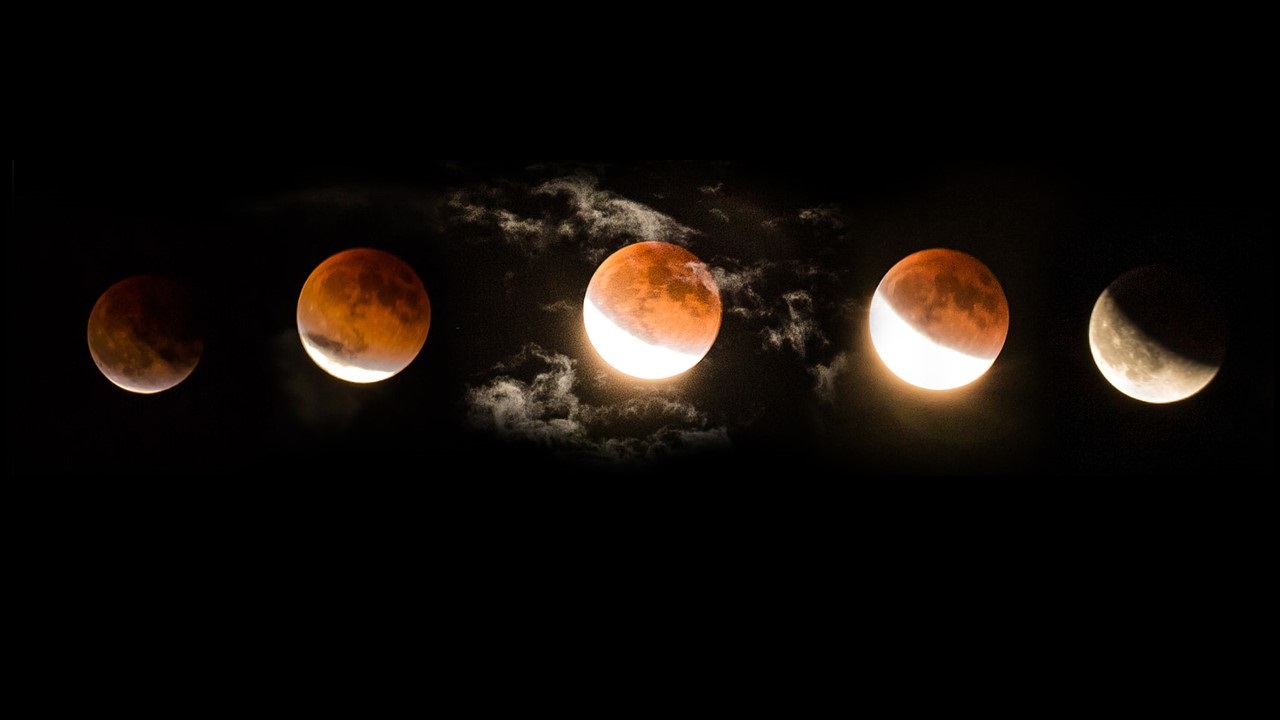.
Blood Moon Eclipse (14 March 2025)
The Moon’s blood red this morning as it floats
within Earth’s shadow, bathing it in light
refracted round our atmosphere, which coats
the lunar dust in rust—a wonderous sight!
Meantime, on climate change we chew the cud,
the Middle East and Europe are at war,
while Africa’s besmirched with civil blood
and tyrants side-step international law.
We’re mere spectators, planet Earth’s on loan,
a ship adrift, from which we get to view
the cosmos, while we reap what we have sown
upon a world we fail to give its due.
No matter Man’s wiped off the planet’s face,
eclipses of the Moon will still take place.
.
.
Paul A. Freeman is the author of Rumours of Ophir, a crime novel which was taught in Zimbabwean high schools and has been translated into German. In addition to having two novels, a children’s book and an 18,000-word narrative poem (Robin Hood and Friar Tuck: Zombie Killers!) commercially published, Paul is the author of hundreds of published short stories, poems and articles.















Well done. Maybe the moon blushes at man’s inanity.
Thanks for reading and commenting, Peter. A blushing Moon! I wish I’d included that phrase. Maybe the next eclipse – if we’re still around.
Paul, I was fascinated by your excellent sonnet constructive skills as much as the observations in the poem. Each of the first three sentences took four lines to complete and one sentence for two lines for the conclusion. The three ways mentioned of mankind being erased and going into oblivion perhaps are among the likeliest ones while the lunar eclipses continue unabated.
Thanks for commenting, Roy. I watched the eclipse from around four in the morning on the roof of my apartment block, wrote the first quatrain on the bus to work along with a rough version of the second quatrain, and the rest when I got home.
We are indeed in dire straits; and yet here I am on a diet, so I haven’t lost all hope.
A clever way of juxtaposing the material with the ethereal. On one side, there’s man, the sublunary creature, immersed in his own worldly affairs, and on the other, there’s this creation whose periodic cosmic phenomena remind us our stay is brief. Beautiful piece, Mr. Freeman. Hope all is well.
Thanks for reading, Shamik, and glad you got the impact of the piece I was aiming for. All’s well here at the back end of the Sahara – in fact it’s unaccountably chilly, today.
Paul, this is an apocalyptic poem that is both stunning and touching. “The Earth on loan, a ship adrift, from which we get to view the cosmos. . .” reminds me of what is perhaps the greatest privilege our planet has, that of a clear view when so much of the universe is clouded by gas and dust, whence any viewers could not see out. How many ways we fail to give the world its due! Your sonnet also reminds me of the much longer “The Last Man” by Scottish poet Thomas Campbell. Magnificent atmospheric effects in both are similar, though Campbell works toward a differing conclusion. With full due respect for your poem and perspective, I recommend it.
https://allpoetry.com/poem/8458109-The-Last-Man-by-Thomas-Campbell
Thank you for reading and for your high praise, Margaret. And thanks for leading me to ‘The Last Man’ and Thomas Campbell. That’s two poets new to me in a week (John Neihardt being the other).
I read The Last Man and was reminded of Richard Matheson’s apocalyptic novel ‘I am Legend’, which was filmed as The Last man on Earth (starring Vincent Price), The Omega Man (starring Charlton Heston), and I am Legend (starring Will Smith). It’s hard to believe Campbell wrote that poem in 1823!